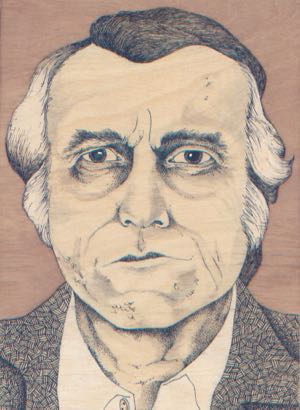
Don DeLillo by Steph Ketnick, 2016

"I became a writer by living in New York and seeing and hearing and feeling all the great, amazing and dangerous things the city endlessly assembles. And I also became a writer by avoiding serious commitment to anything else." --DeLillo to Jonathan Bing, 1997
This biography is largely an oral auto-biography, stitched together from the various interviews. All the passages below that are in quotes are from DeLillo himself, and the other text is from the interviewer noted below each entry.
"I was born on Nov. 20, 1936." Except
for a short stint in Pennsylvania when he was quite young, he
was brought up in the Fordham section of the Bronx, a neighborhood
of mostly Italian- Americans.
(from Passaro, 1991)
"My parents were born in Italy. My father came to this
country in 1916, I believe, when he was a young boy of nine. There
was my grandmother, my father and his brothers and sisters. There
was a total of about seven people, including a dwarf, and a child
my grandmother picked up in Naples along the way.
"My father eventually went to work for the Metropolitan Life
Insurance Company as a sort of auditor in an enormous office at
one desk along with a hundred identical desks here in New York."
(from Burn, 1991)
He lived near Arthur Avenue, with its popular food shops and
restaurants. It was a childhood of sports, family and games. He
played "every conceivable form of baseball," basketball
and football. "No one had a football around there. We used
to wrap up a bunch of newspaper with tape and use that. That was
our football."
(from Passaro, 1991)
"Being raised as a Catholic was interesting because the
ritual had elements of art to it and it prompted feelings that
art sometimes draws out of us. I think I reacted to it the way
I react today to theater. Sometimes it was awesome; sometimes
it was funny. High funeral masses were a little of both, and they're
among my warmest childhood memories."
(from LeClair, 1979)
"I think there is a sense of last things in my work that
probably comes from a Catholic childhood. For a Catholic, nothing
is too important to discuss or think about, because he's raised
with the idea that he will die any minute now and that if he doesn't
live his life in a certain way this death is simply an introduction
to an eternity of pain."
(from Passaro, 1991)
As a boy, Don DeLillo lived a street life - playing cards,
playing ball, shooting pool. "I was not a great pool-shooter,
unfortunately. It's one thing I wish I'd worked harder to develop."
(from Burn, 1991)
"The games I've written about have more to do with rules
and boundaries than with the freewheeling street games I played
when I was growing up."
(from LeClair, 1979)
Q: Did you read as a teenager?
A: "Not much at first. Dracula when I was fourteen.
... And yes, the Studs Lonigan trilogy, which showed me
that my own life, or something like it, could be the subject of
a writer's scrutiny. This was an amazing thing to discover. Then,
when I was eighteen, I got a summer job as a playground attendent--a
parkie. And I was told to wear a white T-shirt and brown pants
and brown shoes and a whistle around my neck--which they provided--the
whistle. But I never acquired the rest of the outfit. I wore blue
jeans and checkered shirts and kept the whistle in my pocket and
just sat on a park bench disguised as an ordinary citizen. And
this is where I read Faulkner, As I Lay Dying and Light
in August. And I got paid for it. "And then James Joyce,
and it was through Joyce that I learned to see something in language
that carried a radiance, something that made me feel the beauty
and fervor of words, the sense that a word has a life and a history.
And I'd look at a sentence in Ulysses or in Moby Dick
or in Hemingway - maybe I hadn't gotten to Ulysses at that
point, it was Portrait of the Artist - but certainly Hemingway
and the water that was clear and swiftly moving and the way the
troops went marching down the road and raised dust that powdered
the leaves of the trees. All this in a playground in the Bronx."
(from Begley, 1993)
"[Oswald]'s first brush with the law came when a truant
officer collected him at the Bronx Zoo. He lived on 179th Street
and I lived on 182d, slightly to the east. He was there roughly
from January 1953 to the end of that year. I don't think I ever
saw him."
(from Mitgang, 1988)
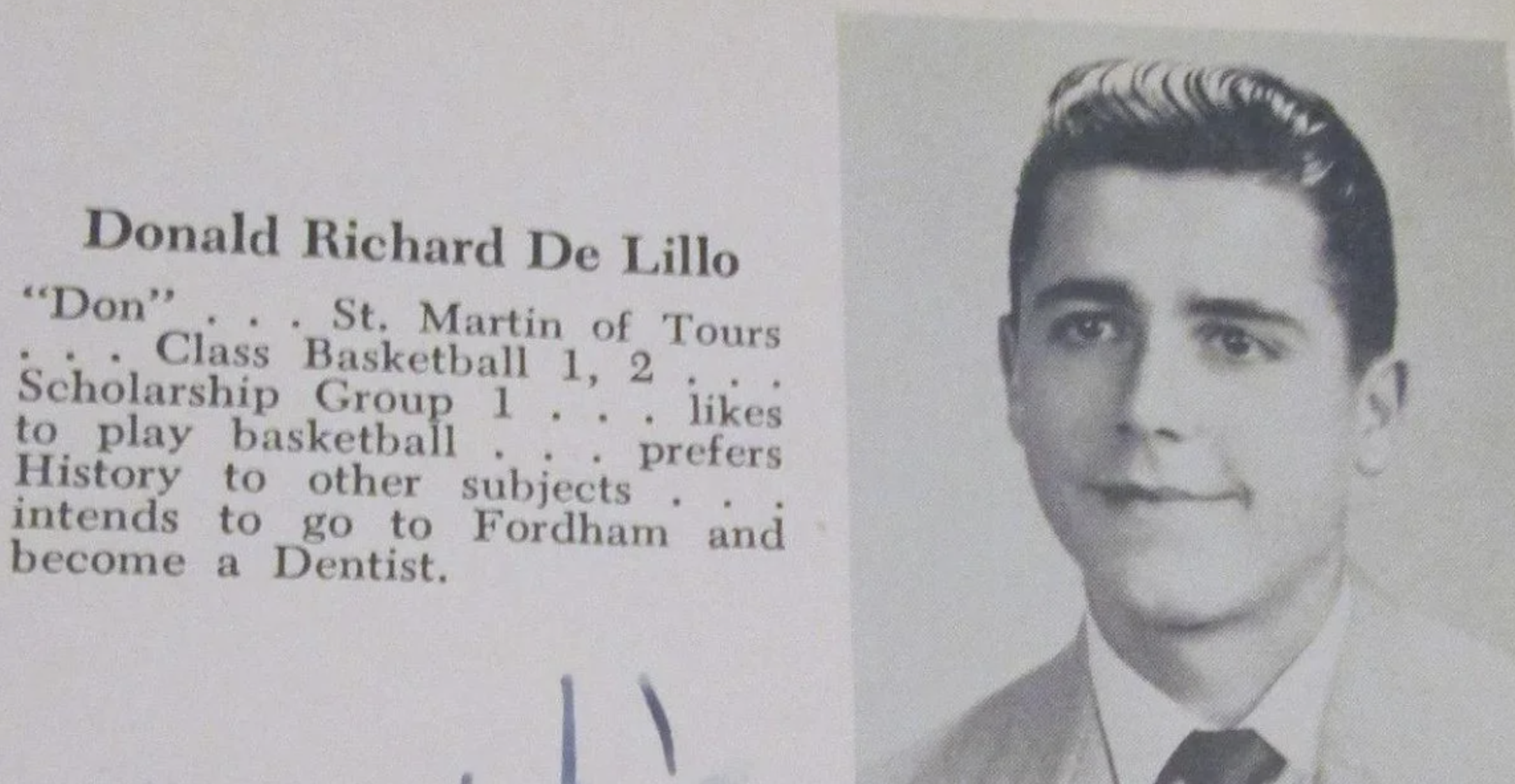
He attended Cardinal Hayes High School ("I slept for four
years there") and later Fordham College, where, he says:
"I didn't study much of anything. I majored in something
called communication arts."
(from Passaro, 1991)
Mr. DeLillo attended Fordham University, where, he says, "the
Jesuits taught me to be a failed ascetic." He hated school
but readily reels off a list of early influences. "I think
New York itself was an enormous influence. The paintings in the
Museum of Modern Art, the music at the Jazz Gallery and the Village
Vanguard, the movies of Fellini and Godard and Howard Hawks. And
there was a comic anarchy in the writing of Gertrude Stein, Ezra
Pound and others. Although I don't necessarily want to write like
them, to someone who's 20 years old that kind of work suggests
freedom and possibility. It can make you see not only writing
but the world in a completely different way."
(from Harris, 1982)
"I think more than writers, the major influences on me
have been European movies, and jazz, and Abstract Expressionism."
(from Passaro, 1991)
"I have a vivid memory of seeing Charlie Mingus. The bandstand
was over the bar. I got as close as standing next to Miles Davis
and Elvin Jones. As the Village Vanguard there seemed to be no
place for the musicians to congregate between sets, and so they
went to the men's room. They used to talk there and I used to
listen. I was washing my hands, slowly, while I was getting
an earful. I loved the music. I still do."
(from Burn, 1991)
"Probably the movies of Jean-Luc Godard had a more immediate
effect on my early work than anything I'd ever read."
(from LeClair, 1979)
The year after he graduated, he got a job in advertising, because
he couldn't get one in publishing.
(from Passaro, 1991)
"That was in another life. I don't want to discuss it."
(from Leith, 1991)
"I found myself in west Texas for a very brief time and
it had an effect on me. I was there to work on an ad for Sears
truck tyres. And I came upon this extraordinary spectacle in the
desert of a nine-mile circuit on which they tested these tyres.
These guys drove around and around this circuit in the middle
of the desert. And occasionally one of them would fall asleep
and drive into the desert and his vehicle would turn over and
he'd die. It had a certain fascination for me."
(from O'Toole, 1998)
Q: Where were you on November 22, 1963?
A: "Eating lunch on New York's West Side with a couple of
friends. In a seafood restaurant called Davy Jones. I don't have
a clear memory of the rest of that day; I guess I watched a little
television. On Sunday, late Sunday, I did watch the Ruby shooting
of Oswald for a couple of hours; but I didn't watch much of the
funeral, which was Monday."
(from Arensberg, 1988)
"I was eating lunch with two friends in a restaurant on
the west side of Manhattan and actually heard about the shooting
at a bank a little later. I overheard a bank teller telling a
customer that the President had been shot in Dallas. And my first
curious reaction was, 'I didn't even know he was in Dallas.' Obviously,
it was totally beside the point. But the small surprise then,
of course, yielded to the enormous shock of what those words meant."
(from DeCurtis, 1988)
"I was working in an ad agency and I was having lunch
with two people, and one of those individuals was herself shot
and killed 10 years later, murdered during a robbery in her house.
So the other person and I have a sense of being survivors of something
- something personal and significant.
"That same weekend of the assassination, I had to fly to
Detroit. It seemed to me the whole nation was steeped in death,
and the last thing I wanted to do was get on a plane. And sure
enough our engine caught fire, and we had to return to the airport
and make an emergency landing."
(from Burn, 1991)
In 1963, DeLillo was "working as a copywriter in an ad
agency. And that was the next to last year of my advertising career,
which was short, uninteresting."
(from Goldstein, 1988)
He quit the job after five years or so and "embarked on
my life, my real life."
(from Passaro, 1991)
"I did some short stories at that time, but very infrequently.
I quit my job just to quit. I didn't quit my job to write fiction.
I just didn't want to work anymore."
(from Passaro, 1991)
He began his first novel "around 1966. It took a long
time, because I had to keep interrupting [it] in order to make
a living."
"I did all sorts of assignments. One day I would be writing
about pseudo-colonial furniture, the next day about computers."
(from Goldstein, 1988)
"I don't always know when or where an idea first hits
the nervous system, but I remember Americana. I was sailing
in Maine with two friends, and we put into a small harbor on Mr.
Desert Island. And I was sitting on a railroad tie waiting to
take a shower, and I had a glimpse of a street maybe fifty yards
away and a sense of beautiful old houses and rows of elms and
maples and a stillness and wistfulness - the street seemed to
carry its own built-in longing. And I felt something, a pause,
something opening up before me. It would be a month or two before
I started writing the book and two or three years before I came
up with the title Americana, but in fact it was all implicit
in that moment."
(from Begley, 1993)
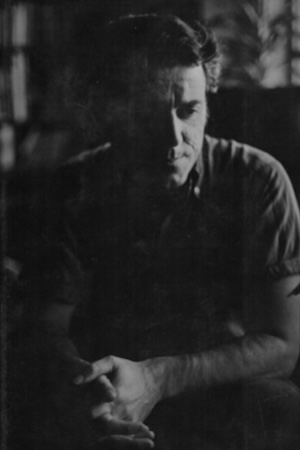
Until [DeLillo] was married--in 1975, to Barbara Bennett, then
a banker and now a landscape designer--DeLillo lived in a studio
apartment in the Murray Hill section of New York.
(from Passaro, 1991)
"At the time I lived in a small apartment with no stove
and the refrigerator in the bathroom and I thought first novels
written under those circumstances ought to be novels in which
great chunks of experience are hurled at the page. So that's what
I did. The original manuscript was higher than my radio."
(from LeClair, 1979)
"Even when I was well into my first novel I didn't have
a system for working, a dependable routine. I worked haphazardly,
sometimes late at night, sometimes in the afternoon. I spent too
much time doing other things or nothing at all. On humid summer
nights I tracked horseflies through the apartment and killed them
- not for the meat but because they were driving me crazy with
their buzzing. I hadn't developed a sense of the level of dedication
that's necessary to do this kind of work."
(from Begley, 1993)
"When I was about halfway through Americana, which
took roughly four years to do, it occurred to me almost in a flash
that I was a writer. Whatever tentativeness I'd felt about the
book dropped away. I finished it in a spirit of getting a difficult,
unwieldy thing out of the way, in a spirit of having proved certain
things to myself."
(from LeClair, 1979)
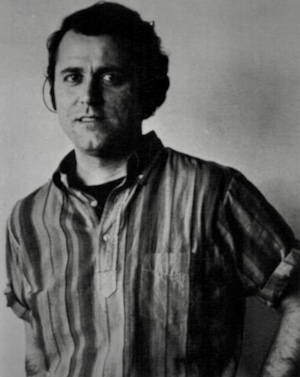
"When I was working on the book [Great Jones Street]
there were beggars and derelicts in parts of the city they'd never
entered before. A sense of failed souls and forgotten lives on
a new scale. And the place began to feel a little like a community
in the Middle Ages. Disease on the streets, insane people talking
to themselves, the drug culture spreading among the young."
(from Begley, 1993)
"I started reading mathematics because I wanted a fresh
view of the world. I wanted to immerse myself in something as
remote as possible from my own interests and my own work. I became
fascinated and ended up writing a novel and a play about mathematicians."
(from LeClair, 1979)
Q: There's a three year period between Great Jones Street
and Ratner's Star. Did it take you all that time to write
it?
A: "It took a little over two years of extremely concentrated
work. I'm amazed now that I was able to do the book in that period
of time. I was drawn to the beauty of scientific language, the
mystery of numbers, the idea of pure mathematics as a secret history
and secret language."
(from Begley, 1993)
They [DeLillo & Bennett] lived in Toronto for a year around
1975, when she worked for Citibank.
(from Kirchhoff, 1991)
For three years while writing The Names Mr. DeLillo
lived in Greece and traveled through the Middle East and India.
"What I found, was that all this traveling taught me how
to see and hear all over again. Whatever ideas about language
may be in The Names, I think the most important thing is
what I felt in hearing people and watching them gesture--in listening
to the sound of Greek and Arabic and Hindi and Urdu. The simple
fact that I was confronting new landscapes and fresh languages
made me feel amost duty bound to get it right. I would see and
hear more clearly than I could in more familiar places."
(from Harris, 1982)
"There were periods in Greece when I tasted and saw and
heard with much more sharpness and clarity than I'd ever done
before or since. And I wanted to discover a sentence, a way of
writing sentences that would be the prose counterpart to that
clarity."
(from DeCurtis, 1988)
"The thing that's interesting about living in another
country is that it's difficult to forget you're an American. The
actions of the American Government won't let you."
(from Harris, 1982)
"I lived abroad for three years, and when I came back
to this country in 1982, I began to notice something on television
which I hadn't noticed before. This was the daily toxic spill--there
was the news, the weather, and the toxic spill. This was a phenomenon
no one even mentioned. It was simply a television reality. It's
only the people who were themselves involved who seemed to be
affected by them. No one even talked about them. This was one
of the motivating forces of White Noise."
(from Rothstein, 1987)
"While I was working on White Noise, I decided
to interrupt the novel and write a non-fiction piece for Rolling
Stone. Then I began to think seriously about Libra
three and a half years ago."
(from Mitgang, 1988)
"I'm not an obsessive researcher, and I think I read maybe
half of The Warren Report, which totals twenty six volumes.
There are acres of FBI reports I barely touched. But for me the
boring and meaningless stretches are part of the experience."
(from Begley, 1993)
The most valuable part of his research, [DeLillo] said, was
spent in Dallas and New Orleans, where Oswald also stayed for
awhile. "Three of the places where Oswald lived in Dallas
are still standing--a rooming house and two other houses. It was
very haunting to see them and the one in New Orleans."
(from Mitgang, 1988)
"Libra will have a lingering effect on me partly
because I became so deeply involved in the story and partly because
the story doesn't have an end out here in the world beyond the
book - new theories, new suspects and new documents keep turning
up. It will never end."
(from Begley, 1993)
Although he is not as reclusive as Bill Gray, DeLillo did not
do promotional tours until Libra was published.
(from Kirchhoff, 1991)
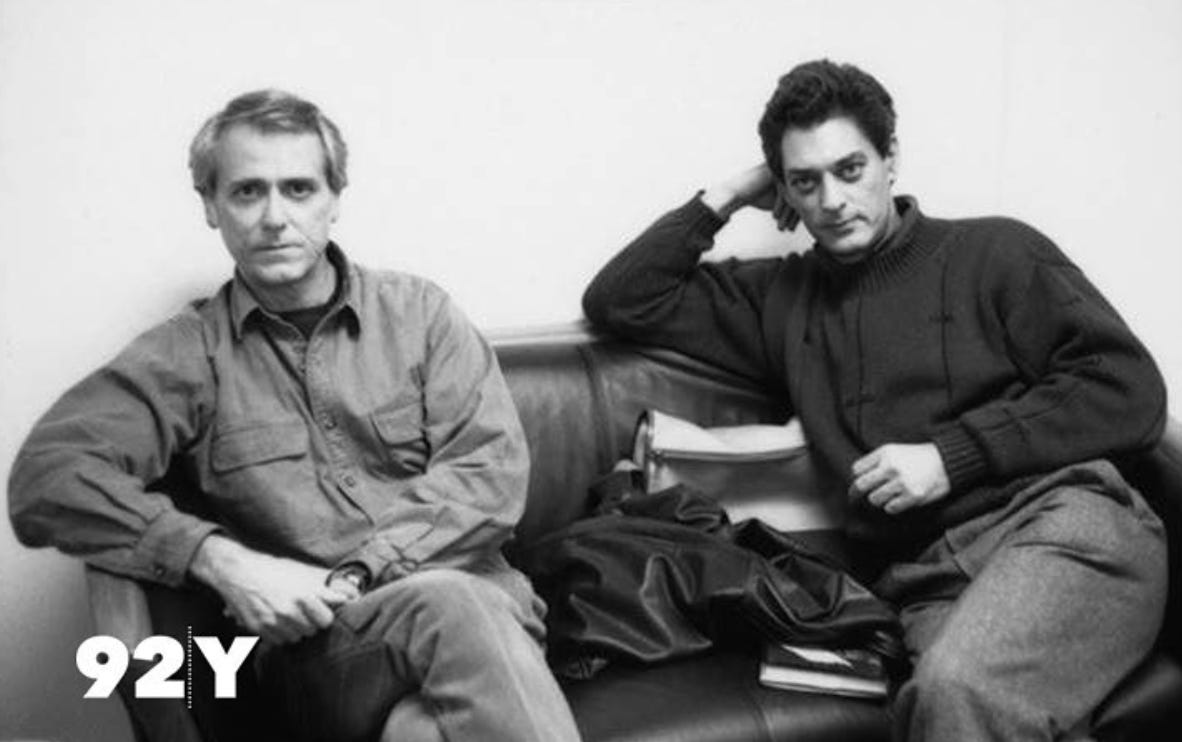
DeLillo's first public reading was reportedly on Nov. 26, 1990 at the 92nd Street Y (along with Paul Auster), where he read from Libra and the yet-to-be-published Mao II. See Mark Rifkin's piece "a terrifying silence: paul auster and the mists of solitude" published May 28, 2024.
He had returned the night before from San Francisco, the final
stop on a reading tour and promotional merry-go-round. "I'm
retiring. This is the beginning and end of my promotional career.
I've been trying to develop a spirit of co-operation. But I'm
going to, ah... sink into the sunset. I'm not happy being a public
figure."
(from Burn, 1991)
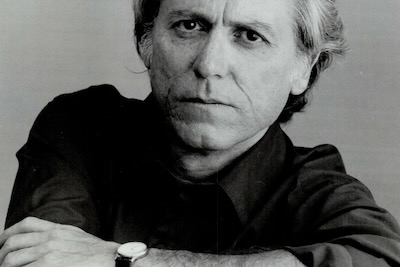
Q: What are your working habits now?
A: "I work in the morning at a manual typewriter. I do about
four hours and then go running. This helps me shake off one world
and enter another. Trees, birds, drizzle - it's a nice kind of
interlude. Then I work again, late afternoon, for two or three
hours. Back into book time, which is transparent - you don't know
it's passing. No snack food or coffee. No cigarettes - I stopped
smoking a long time ago. The space is clear, the house is quiet.
A writer takes earnest measures to secure his solitude and then
finds endless ways to squander it."
(from Begley, 1993)
"Sometime in late 1991 I started writing something new
and didn't know what it would be - a novel, a short story, a long
story. It was simply a piece of writing, and it gave me more pleasure
than any other writing I've done. It turned into a novella, "Pafko
at the Wall." At some point I decided I wasn't finished with
the piece. I was sending signals into space and getting echoes
back, like a dolphin or a bat. So the piece, slightly altered,
is now the prologue, to a novel-in-progress, which will have a
different title. And the pleasure has long since faded into the
slogging reality of the no-man's-land of the long novel. But I'm
still hearing the echoes."
(from Begley, 1993)
Q: But you'll keep on writing?
A: "I'll keep writing something, certainly."
Q: I mean, you couldn't take up gardening?
A: "No, no, no, no, no."
(from Begley, 1993)
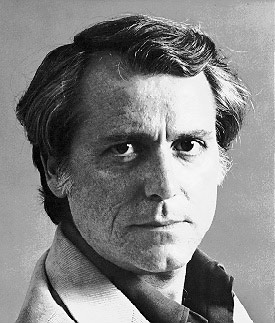
For a detailed review of DeLillo's comings and goings from 1997 to the present, please see the Events.
Back to DeLillo's America